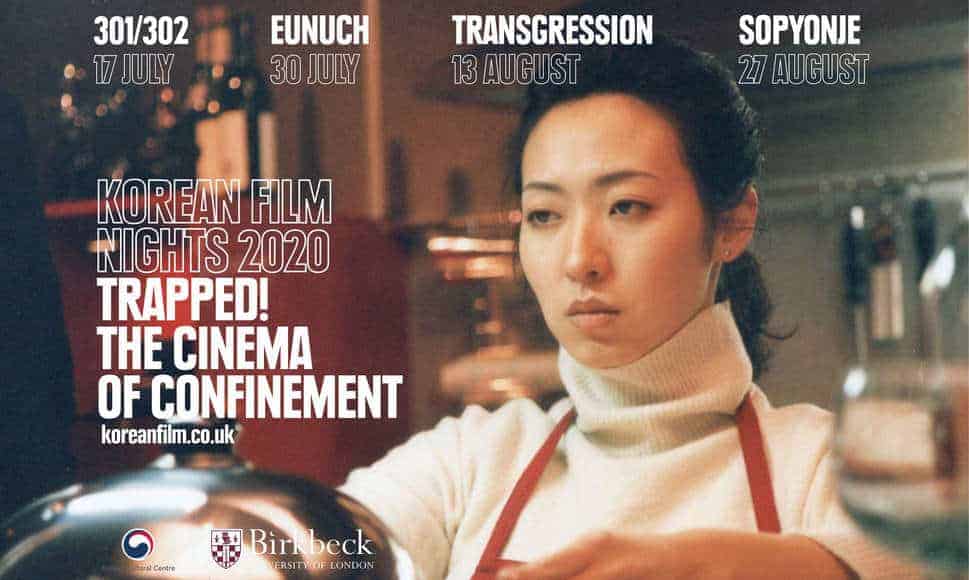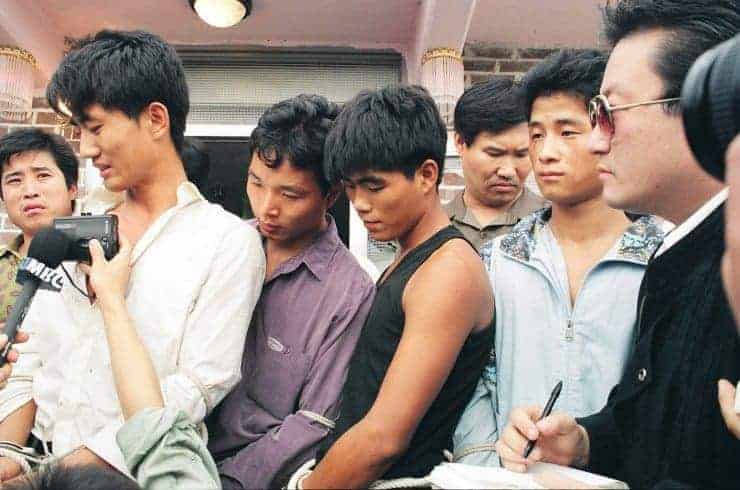The way to a man's heart is allegedly through his stomach, but as with all things we love, this wisdom old as the patriarchy itself calls for the hashtag #itscomplicated. Whether this particular saying is true or not, many emotions are passed in our digestive system though tiny mechanisms in brain that make us crave for certain type of food, or avoid it at all costs.
“301,302” screened as part of the Korean Cultural Centre UK‘s “Trapped! The Cinema of Confinement” programme

Asian cinema has a very special relationship to food. For quite some time, dinning rooms or restaurant tables have been playing a crucial role in presenting the key movie characters, their milieus and thoughts, influencing the narrative, often turning into the main stage. It is very hard to imagine a Hong Sang-soo film without a variety of food and an impressive amount of Soju or Makgeolli flowing down people's throats to make their tongues loosened and their attitude off guard. In his latest drama “The Woman Who Ran” which competed at the Berlinale where it scooped the Silver Bear for Best Director, the quality of beef grilled during one of the three encounters between the titular character Gem-hee (Kim Min-hee) and her girlfriends was discussed in great lengths.
Another Berlin contender, Tsai Ming-liang's “Days” which won the Teddy Jury Award, had the longest cooking foreplay, teaching us how to rinse the vegetables and/ or the fish properly, leading to a brief sexual climax that lasted the fraction of all the food prep. It is there that we found the profound connection between food and sexuality in simple formulas whispered into our ears. Tsai Ming-liang teaches us the basics of the energy feeding our digestive and sexual organs.
In the western cinema tradition, food was seldomly taken as seriously as in the Asian, mostly having been munched fast and matter-of-factly, or dramatically stiff to announce mayhem. Disregarding films dedicated to food such as Campbell Scott's & Stanley Tucci's “Big Night” (1996), Rya Murphy's underwhelming “Eat, Pray, Love” (2010) starring Julia Roberts and Javier Bardem, we can single out classics by Marco Ferreri – “Blow Out” ( La Grande Bouffe, 1973), Gabriel Axel's “Babette's Feast” (1987), Louis Malle's “My Dinner With Andre” (1986), or even Jon Avnet's “Fried Green Tomatoes” (1991) as films where food served was the means of expressing much higher ideas. Genre films were always offering a more fertile ground for an original story development, such is the case with Peter Greenaway's “The Cook, The Thief, His Wife & Her Lover” (1989), or Antonia Bird's groundbreaking gorey cannibal period drama “Ravenous” (1989) . Let's not venture deeper into the realms of the true genre pearls of the western movies, or we will get forlorn in a very dark place.
Back in Asia, more precisely in Korea, it is a great delight to dive into Park Chul-soo's modern classic “301, 302” with its powerful story about a lonely chef and her equally lonely neighbor, their strange bonding and the abrupt falling out. The film proves that affection for food can mean many things, especially related to female trauma, and more specifically to the mental/ and or sexual abuse, and not just as the gate to a successful love.relationship.
At the core of the plot is cooking aficionado Song (Pang Eun-jin), a housewife and a dedicated explorer of all things food with many lines to deliver, who gets pushed away by her husband for the only thing she really felt truly dedicated to. To re-awaken his attention, Song does an atrocious thing that she gets punished for in the divorce process, and her only way to deal with it is to continue cooking, this time calculating the calories intake through a day-to-day written journal as a single woman who has moved into a flat 301 in the newly built, modern residential building . It is a place of freedom where she can live her food obsession completely, progressively losing weight and focusing on healing her own demons from the past, as someone who was suffering from bulimia due to hurt. When the new neighbor Yun (Hwang Sin-hye) moves in flat 302, looking like the emaciated model that needs to be taken care of, Song becomes obsessed with the idea of feeding her, without realizing that the new neighbor has more trauma that she can possibly deal with. Yun's baggage is more than anyone without a psychiatrist licence could take, but her refusal to eat the lovingly prepared meals by Song, gets completely misunderstood, and she falls victim of her inability to defend herself in any way .
When the flash-backs catapult us to Yun's teenage years, it's the place we want to immediately leave. The disfunctionality and brutality of it is disturbing to such an extent, that we beg for her mercy. But instead of clemency, she will find doom in refusing to eat “good food”. The crime story unfolds, but no one seems to be truly interested in understanding its depth, not even a detective who is sent to investigate her disappearance . Yun is just a mysterious digit in the computer system, a woman doomed to meet a disastrous end from her early teenage years.
The collages from cook books and the footage of skillful hands preparing delicacies are inserted and edited in the film with such perfection, that they bring Song's passion to life. And as with all well accomplished works of art, the morality of the story is that the truth is out there, but that you have to dig for it on your own.















